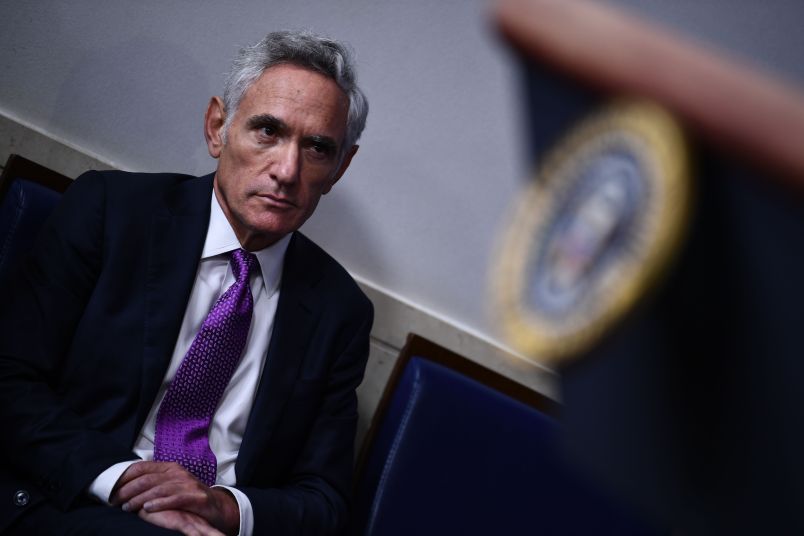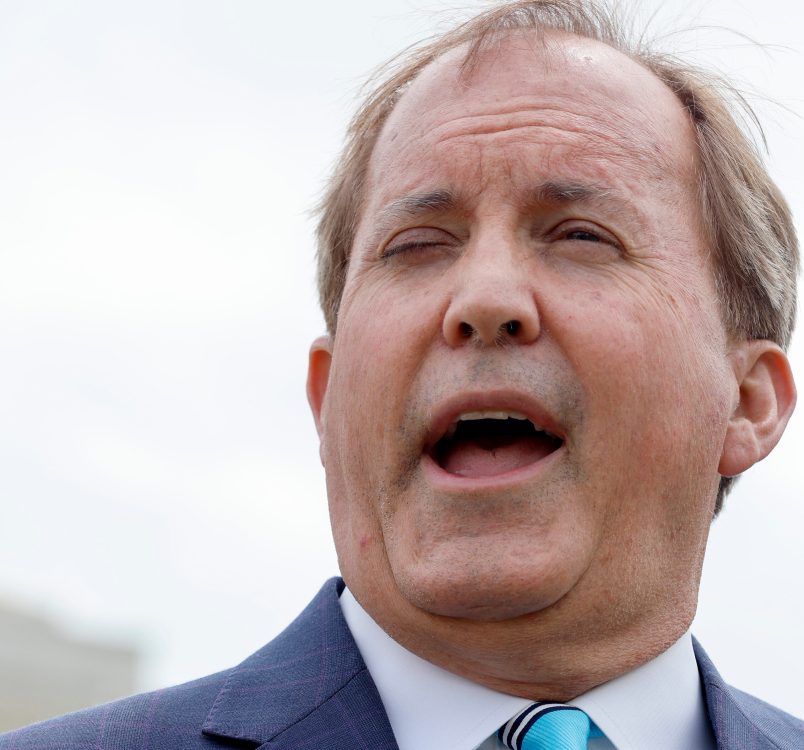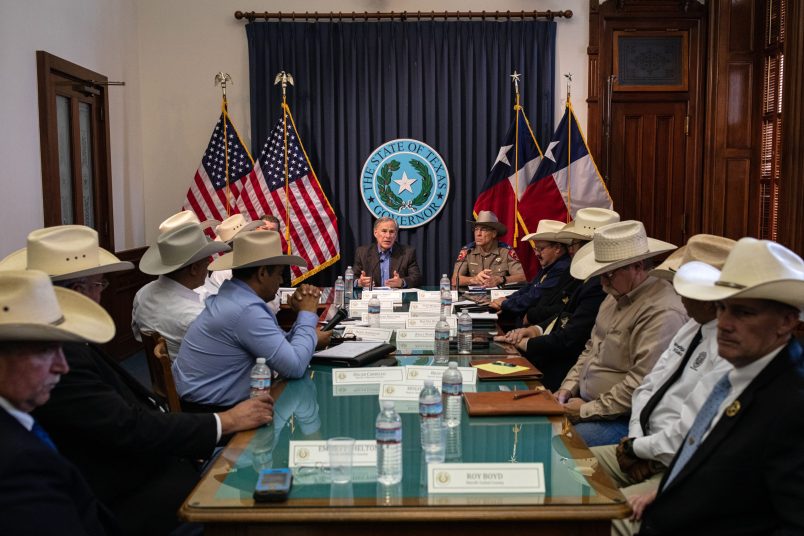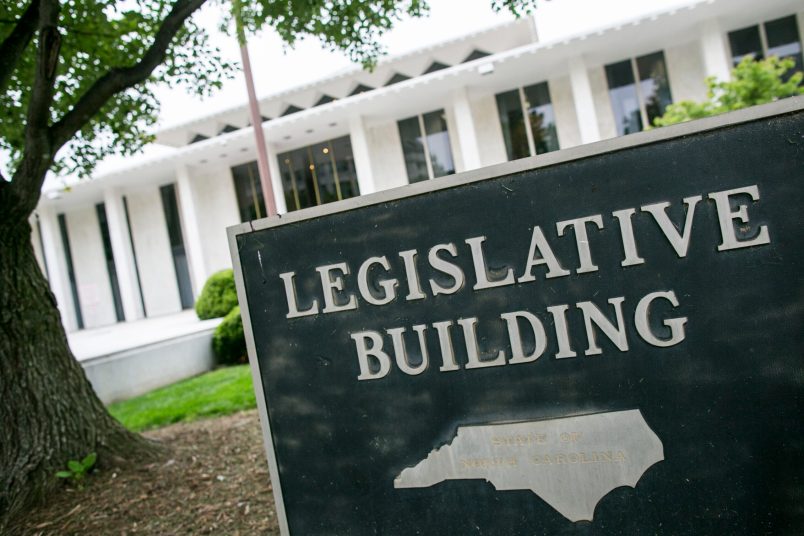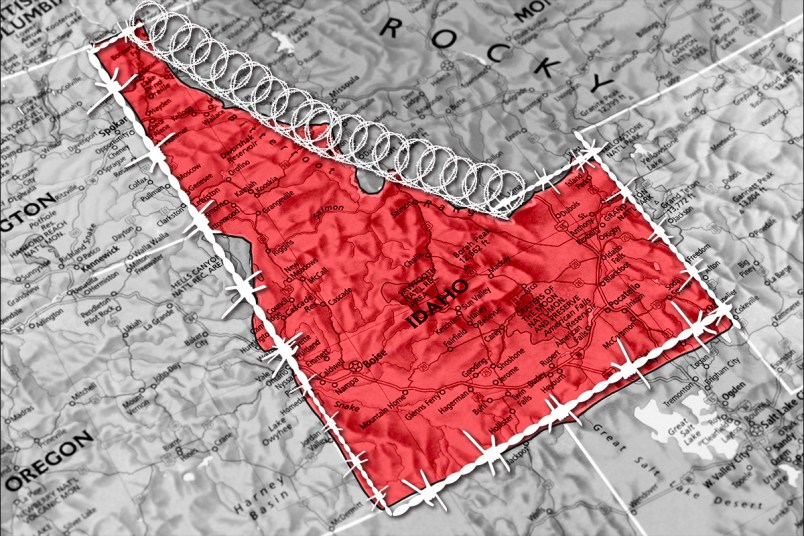The President’s got a new top doc. His name is Scott Atlas, and in recent months, Atlas has cut a well-worn path arguing on television that America’s COVID-19 fears were overblown — that, as he said in May, “the cure is bigger than the disease.”
It’s a familiar pattern by now. The scientific contrarian takes conservative media by storm, ultimately influencing tens of millions of people via prominent appearances on Fox News. But Atlas, unlike other celebrity doctors in the COVID-19 era, has managed to turn his success into a White House gig.
As Politico reported Thursday morning, Atlas — but not Dr. Anthony Fauci, the nation’s top infectious disease expert — now meets with a smaller group of influential Trump advisers apart from the White House Coronavirus Task Force. Others in the side group include Dr. Deborah Birx (the Task Force’s leader), Jared Kushner, Adam Boehler (CEO of the U.S. International Development Finance Corporation and Kushner’s former roommate) and Stephen Miller.
That’s a lot of influence for a new White House adviser. But Atlas’ public presence looms large. Here’s what we know about President Donald Trump’s new COVID-19 whisperer.
He’s not an epidemiologist (nor even a practicing doctor, anymore)
According to Atlas’ biography at the Hoover Institution, where he is a senior fellow, he served as the chief of neuroradiology at Stanford University Medical Center from 1998 until 2012. Atlas has published work in the field and trained neuroradiologists at Stanford.
But he’s not an epidemiologist nor does he have significant experience with infectious disease. And as he said during a March 31 interview, “I’m not anyone’s doctor out there.” He stopped practicing when he joined Hoover full-time in 2012, he said in a 2013 interview.
Rather, Atlas writes and advises on health care policy, advocating for things like cost transparency and against things like socialized medicine. Atlas’ early commentary on COVID-19 followed his professional experience — such as a mid-March appearance on the Lars Larson show titled, “Would Medicare for all make fighting coronavirus easier or worse?” (Worse, Atlas argued.)
He was wrong on COVID-19 early and often
When Atlas did begin commenting directly on COVID-19 policy, at least at first, he appropriately cautioned people against hoarding medical supplies and taking hydroxychloroquine prophylactically, as the President later claimed to have done. And he was careful to caveat that his predictions about the disease were just that — predictions. Still, they were often very wrong.
In that same March 31 interview, for example, he speculated that “all reasonable numbers point to the fact that our number of severe outcomes will be peaking in around three weeks or so.” He asserted that it was “very important” that herd immunity develop, even before a vaccine was ready. “I think it’s going to be weeks, a short number of weeks, not months, where we get a gradual reentry,” he added later.
In mid-May, asked about a model that projected more than 137,000 people dying of the disease by Aug. 4 (a projection that turned out to be optimistic), Atlas dismissed the focus on “sensationalistic modulations of a hypothetical projection model.”
“The curves have been flattened,” he said.
Atlas’ scientific contrarianism has earned him a big audience
The Hoover fellow’s COVID-19 commentary really took off around late April, when he published an op-ed in The Hill arguing to “reopen” society, asserting among other things that “Vital population immunity is prevented by total isolation policies, prolonging the problem.” The article furthered Atlas’ case that the “cure” for COVID was worse than the disease itself.
The post went viral, earning Atlas appearances everywhere from CNN to local television to Congress. “It is not logical that otherwise healthy adults, especially younger age groups, should be isolated or maintain a six‐foot spacing from each other,” he told the Senate Homeland Security and Governmental Affairs Committee in early May, contradicting the federal government’s stance.
“If infection is still prevalent,” he said, “socializing among these low‐risk groups represents the opportunity for developing widespread immunity and eradicating the threat.”
His Fox News appearances preceded his White House gig
With his public presence exploding, Atlas also appeared more often on the biggest platform of all, Fox News.
In recent weeks on the channel, he’s pushed for schools to reopen due to the virus’ relatively low risk to children — and because, Atlas asserted in an Aug. 3 interview, children are “not significant spreaders.” (The jury is still out on that claim.)
In fact, Atlas first made his way into a White House briefing because of a Fox News interview about reopening schools. On July 16, discussing school reopenings, White House press secretary Kayleigh McEnany glanced down at her ever-present binder of canned quotes and read from Atlas’ appearance on Fox News the previous night.
“As Dr. Scott Atlas said — I thought this was a good quote — ‘Of course, we can [do it],” she said. “‘Everyone else in the …Western world, our peer nations are doing it. We are the outlier here.’”
Crucially (for him), Atlas agrees with Trump about reopening schools
Perhaps Atlas’ greatest political asset as a Trump adviser is that he happens to agree with the President. As CNN reported Wednesday, Atlas is unlike other Trump medical advisers in that he unabashedly advocates for opening schools and resuming college sports.
Introducing Atlas on Monday, Trump said “he thinks what we’ve done is really good, and now we’ll take it to a new level.”
According to a pool report from the White House’s Wednesday event on school reopening, there were four White House officials slated to attend, in addition to Education Secretary Betsy DeVos: The President, the vice president, Kellyanne Conway, and Scott Atlas.
At a press briefing later in the day, there were three administration officials seated on the side of the room as Trump spoke: Treasury Secretary Steve Mnuchin, economic adviser Larry Kudlow — and Scott Atlas. Atlas spoke at both events.
“This is the first time I’ve shared the platform, and it’s an honor to do so,” Trump said before inviting Atlas to the podium.
“I’m new here,” Atlas said, understating things slightly. “I hope I can help out in some way.”


